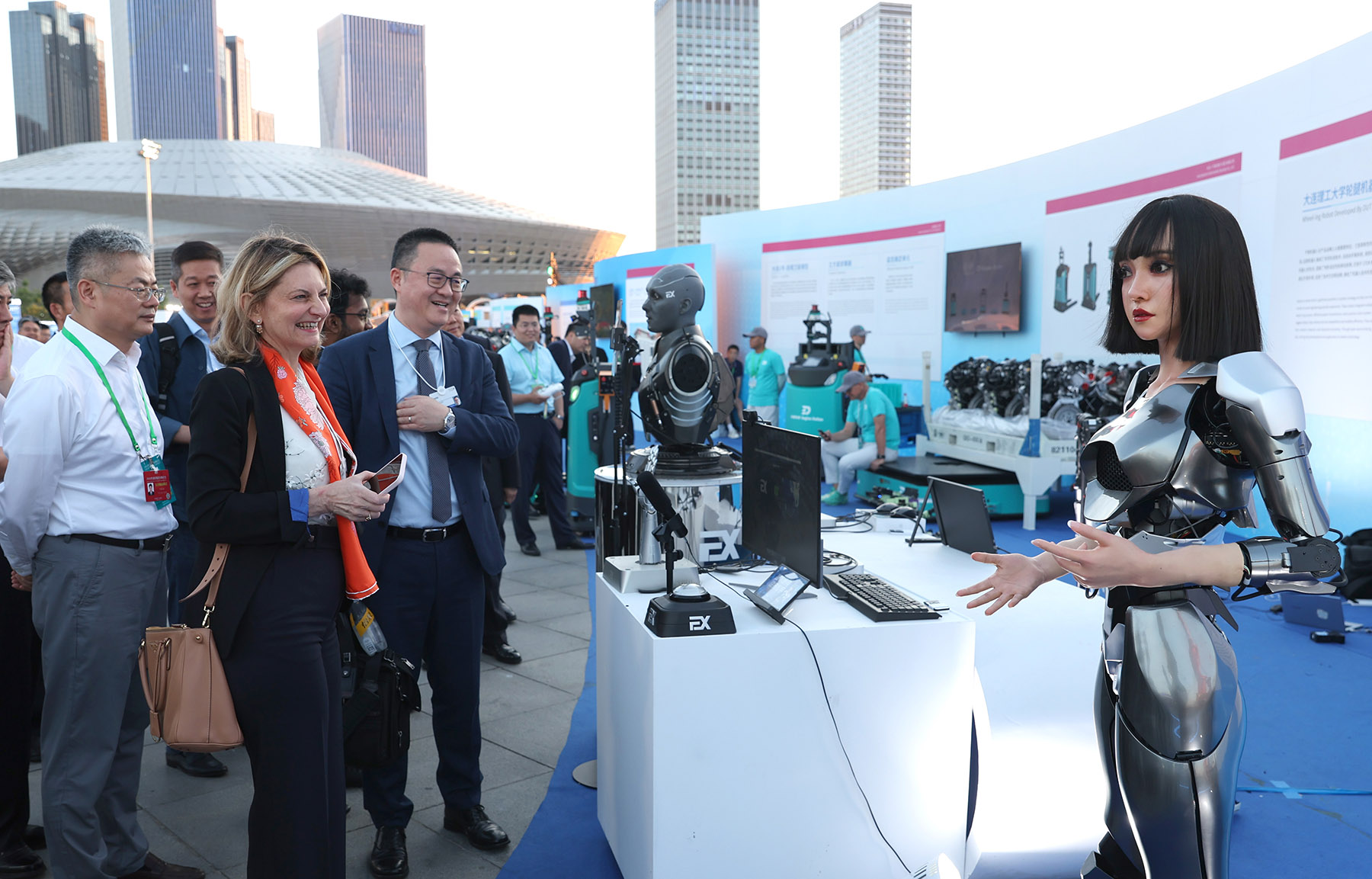
As generative artificial intelligence is increasingly applied to a widening range of sectors, more efforts are needed to ensure the safe application of the fast-growing intelligent technology through global governance and cooperation, said renowned experts and entrepreneurs at the 15th Annual Meeting of the New Champions, also known as the Summer Davos Forum, in Dalian, Liaoning province.
The application of large language models in industries is key to the development of generative AI technology in China, said Zhu Min, former deputy managing director of the International Monetary Fund, adding that China's AI models are more vertical and application-oriented due to the country's abundant application scenarios.
READ MORE: China to see robust growth in AI PC shipments
Generative AI refers to computer algorithms trained with huge amounts of data capable of generating content such as images, text, audio and video in a humanlike fashion. It is the key technology underpinning US-based research firm OpenAI's ChatGPT.
Xue Lan, dean of Schwarzman College and dean of the Institute for AI International Governance at Tsinghua University, emphasized that people's willingness to use AI, research capabilities and the establishment of an AI ecosystem led by businesses are critical elements driving the growth of the AI-powered economy.
Although AI generates huge benefits, it also brings about various problems, so Xue called for efforts to supervise or regulate the use of such fast-developing technology to guard against potential risks.
Noting that technological advances in AI are much faster than changes in regulations related to AI, he said China and the United States should strengthen cooperation to promote the safe and healthy development of AI.
Aparna Bharadwaj, managing director and partner at global consultancy Boston Consulting Group, said in an interview with China Daily during the forum that Chinese consumers are the most positively inclined toward AI, adding they are very open and willing to embrace the possibilities of AI technology, which presents an incredible opportunity for Chinese businesses.
Bharadwaj said the most important competitive advantage that China owns in applying generative AI technology lies in consumer acceptance levels, which are much higher than the global average.
"Chinese consumers are very digitally savvy, digital technology evolves in China much faster, and Chinese businesses have been bringing digital innovation much faster in the market," she said.
According to a report released by BCG, 86 percent of interviewed Chinese consumers are aware of generative AI, compared with nearly 80 percent globally.
About 56 percent of these Chinese respondents are very positive toward AI, while less than 10 percent are concerned about this disruptive technology. Meanwhile, 43 percent of global consumers say they are excited about generative AI, but more than 25 percent expressed reservations.
"China has always been an innovation leader in the world. And there's a very high possibility for that innovation also coming from the space of generative AI," Bharadwaj said, adding that she is optimistic about the development potential of such technology in China.
Moreover, Chinese companies are always early adopters of digital technologies and have applied such technologies in a wide range of fields much faster, she said.
ALSO READ: IMF urges fiscal policymakers to mitigate inequality in AI transition
Bharadwaj also underlined the significance of protecting user privacy and data security.
"This technology is evolving rapidly, and governments are learning how to regulate it, and they have to be ahead of the curve with the private sector to be able to regulate it."
Wang Guan, chairman of Learnable.ai — an AI startup — said AI-powered models could be applied in the education sector and are playing a role in assisting teachers to mark various types of exam papers.
Wang said the company's large language models have been used in various sectors, such as education, energy, aviation, manufacturing and transportation, to help businesses improve efficiency.
Contact the writers at fanfeifei@chinadaily.com.cn


